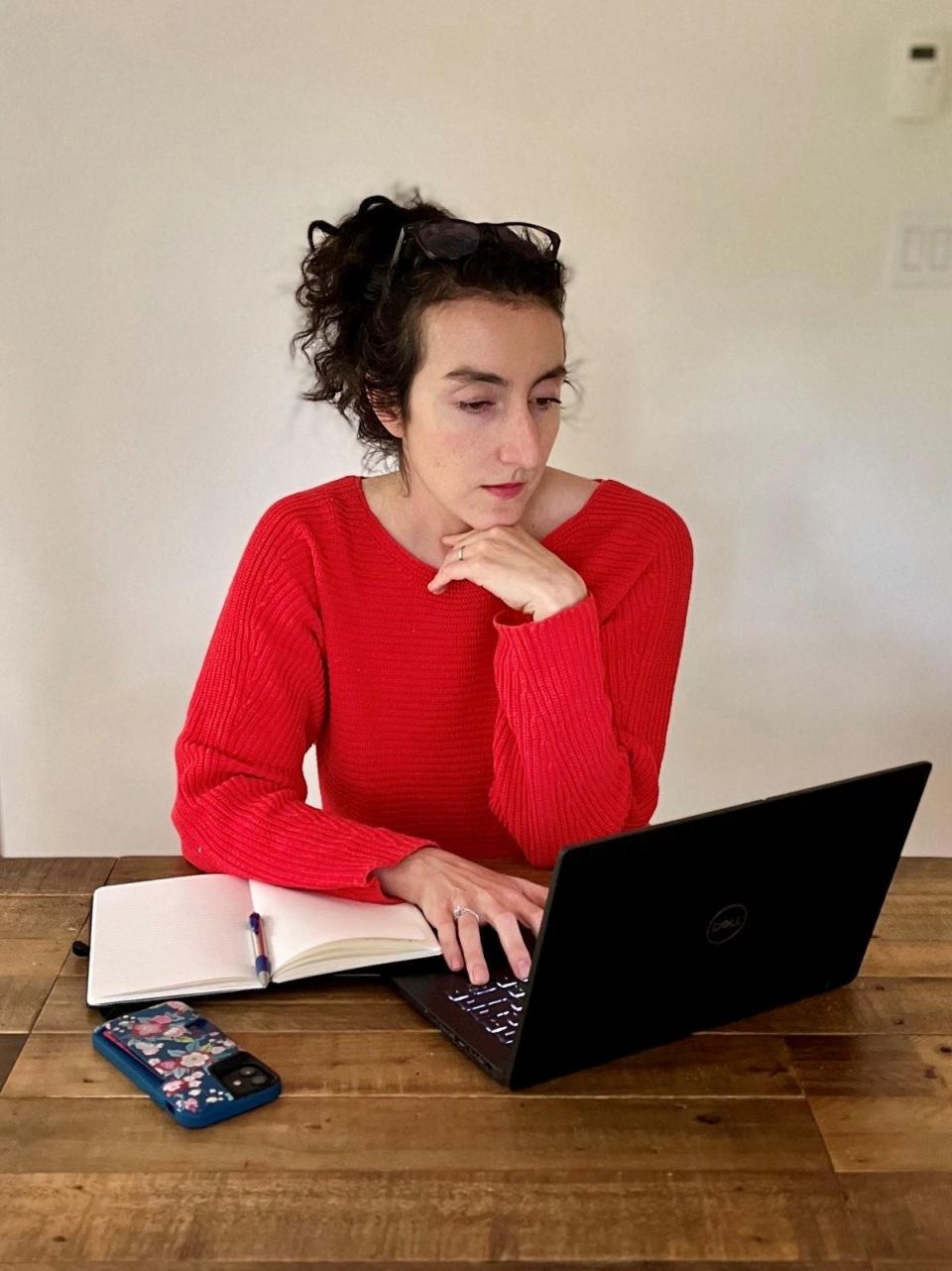West Shore alum wins Pulitzer, journalism's top prize
For journalists, winning a Pulitzer Prize for their craft is akin to winning the MVP in the Super Bowl. Or an Oscar at the Academy Awards.
It’s the brass ring and the Pulitzer means you’re among the best, as judged by your peers.
Rachael Levy, a Brevard County native and 2007 graduate of West Shore Jr./Sr. High School, was awarded a Pulitzer recently. She was a member of a Reuters team who won the Pulitzer for exploring the business operations of Elon Musk. That includes SpaceX, which has been an integral part of Brevard’s aerospace economy.

The investigative series was titled "The Musk Industrial Complex" and it examined worker injuries - and a death - at SpaceX. It featured multiple stories on Musk's electric car company, Tesla. The articles also looked at lab animals, the pressure to speed up research, and the FDA's safety concerns at Musk’s brain-implant company, Neuralink.
Not bad for someone who tinkered with journalism in high school – including writing for her high school paper and a former student-run journalism section at FLORIDA TODAY called “The Verge.”
Levy’s initial goal was to be an attorney, but journalism captured her interest.
“I actually didn't do much with journalism at first,” Levy said in a recent interview from her residence in Washington, D.C. “I went to college and thought I would become a lawyer. Then I realized I had no passion for that.
“I was curious about too many things. No other profession gives you an excuse to ask literally anyone anything,” she said. “It's an enormous privilege.”
After West Shore, Levy attended the American University of Paris, where she majored in international and comparative politics. After that she attended the Craig Newmark Graduate School of Journalism at the City University of New York.
Before joining Reuters, Levy worked at the Wall Street Journal, Politico, Business Insider and other financial trade publications.
At Reuters, Levy began writing about Neuralink, which is developing a brain implant for computer interfacing. If the technology ever meets its goals, it could be hugely beneficial to the disabled, such as those with paraplegia.
Allegations made in the Reuters’ articles by current and former Neuralink employees, said the culture at Neuralink led to rushed animal experiments and caused more animal deaths than necessary. Those sources also provided Levy with internal documents and records.
Levy’s work triggered probes from lawmakers and led to more Reuters articles on Neuralink, including one on the FDA's safety concerns about the brain implant and initial rejection of the company's application to begin clinical trials.
Levy’s Reuters’ colleague, Marisa Taylor, also reported on a pattern of SpaceX workers getting injured at much higher rates than at comparable space companies. The Tesla coverage was spearheaded by reporters in Europe and the United States.
“Reuters has a deeply resourced, global newsroom,” said Levy, who lives in the Washington, D.C. area. “This was a big team effort.”
Both Levy, and her colleagues, tried to contact Musk on numerous occasions for the series but were unsuccessful.
“I've covered other billionaires and powerful people before,” she said. “Not everyone always wants to comment, and that's fine. But it does mean that the story about them, that will get read by potentially hundreds of thousands or even millions of people, lacks their perspective.”
She noted the other challenge is that employees at his companies often have to sign non-disclosure agreements.
“It means pretty much no one wants to be named as a source,” Levy said. “Readers might wonder, ‘Well, how do I know if this information is true if the sources are anonymous?’ I must always verify, cross reference. And I always protect my sources' confidentiality.”
Levy sees herself continuing her coverage of Neuralink and maybe she’ll eventually get that interview with Musk.
She also wanted to note the other Reuters team members involved in the Pulitzer-winning project: Taylor, wrote the SpaceX piece and teamed with Levy on the Neuralink story, while Steve Stecklow, Hyunjoo Jin, Kevin Krolicki, Marie Mannes, Norihiko Shirouzu, Waylon Cunningham and Koh Gui Qing reported on the Tesla stories.
As a young journalist, Levy is aware of the headwinds the industry faces in the years ahead. Still, she is excited, and determined, to continue her journey in journalism.
“For years now the industry has been having to do more (or the same) with much less,” she said. “It is not good for the public — it means there are fewer watchdogs checking how our taxes are spent, how powerful businesses influence our lives, and so on. I am very fortunate to be part of a deeply resourced newsroom where I can do this work.”
Wayne T. Price wrote this story for FLORIDA TODAY.
This article originally appeared on Florida Today: West Shore grad, Reuters journalist part of Pulitzer winning team

